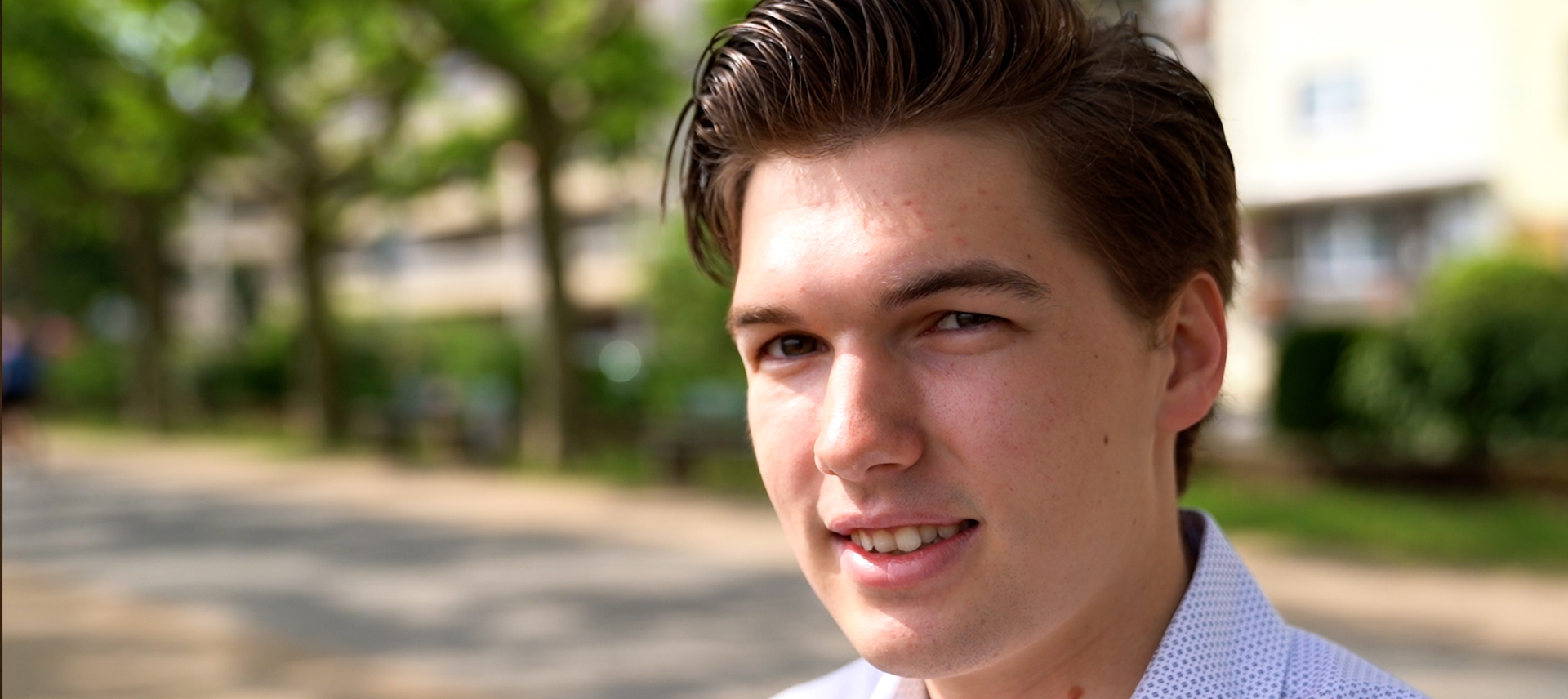Jakob
“We must always ask ourselves: where are the limits of immigration?”

About a year ago, Jakob moved from Bad Kreuznach to Mainz. Here he is studying law in his third semester and is politically involved with the liberal-conservative university party RCDS. For Jakob, the exchange with acquaintances and friends who came to Germany as immigrants enriches his own life. A central point for him to strengthen this enrichment in society: the mixing of natives and immigrants to prevent parallel societies.
Do you perceive Mainz as a conservative city?
A conservative city? Well, the Catholic Church plays a role in Mainz, but I don’t know if you could call the whole city conservative. Overall, I think it’s more of a happy, open-minded city. It certainly has its traditions, such as Fassenacht (carnival) and Marktfrühstück, and Mainzers here also value these traditions – but those are cheerful ones that also invite other people.
Do you think immigration is beneficial for a country?
Yes, I would say that immigration most definitely enriches a country. However, with immigration, as with everything in politics, you have to consider what the risks are. Immigration has not only advantages but can also cause problems – these must be prevented and addressed. Such problems are, of course, on the one hand racism against immigrants, but also the emergence of parallel societies of immigrants who could not integrate and therefore remain among themselves. We don’t want that to happen. We want to be a big, open, friendly society, where natives and immigrants can live well together. If we can do that, then we can fully exploit the potential of immigration, such as cultural enrichment and economic strengthening. However, we must always ask ourselves the questions: where are the limits of immigration, how much control does immigration need and with what guidelines in integration do we have to control the whole thing so that we do not develop parallel societies?
“I would say that immigration most definitely enriches a country. However, with immigration, as with everything in politics, you have to consider what the risks are.”
Is there anything you would like to see, whether from immigrants or those already living here – for example, to reduce this danger of parallel societies?
I think it’s a lot about practicing it from a young age. For example, if your best friend in elementary school came from another country or if you were an immigrant yourself and you went in and out of the homes of natives, then you don’t create a parallel society. And that’s why I think it’s important that we manage to ensure that the percentage of natives and immigrants is distributed similarly in kindergartens, elementary schools and secondary schools. That it’s not “this is the school where only the locals go and this is the school where only the migrants go” – I think that’s very dangerous. I want people to interact, to know each other well, to go to the same sports clubs, to play together outside in the street as children. And if you learn that from an early age, then I think that will continue throughout your life.
